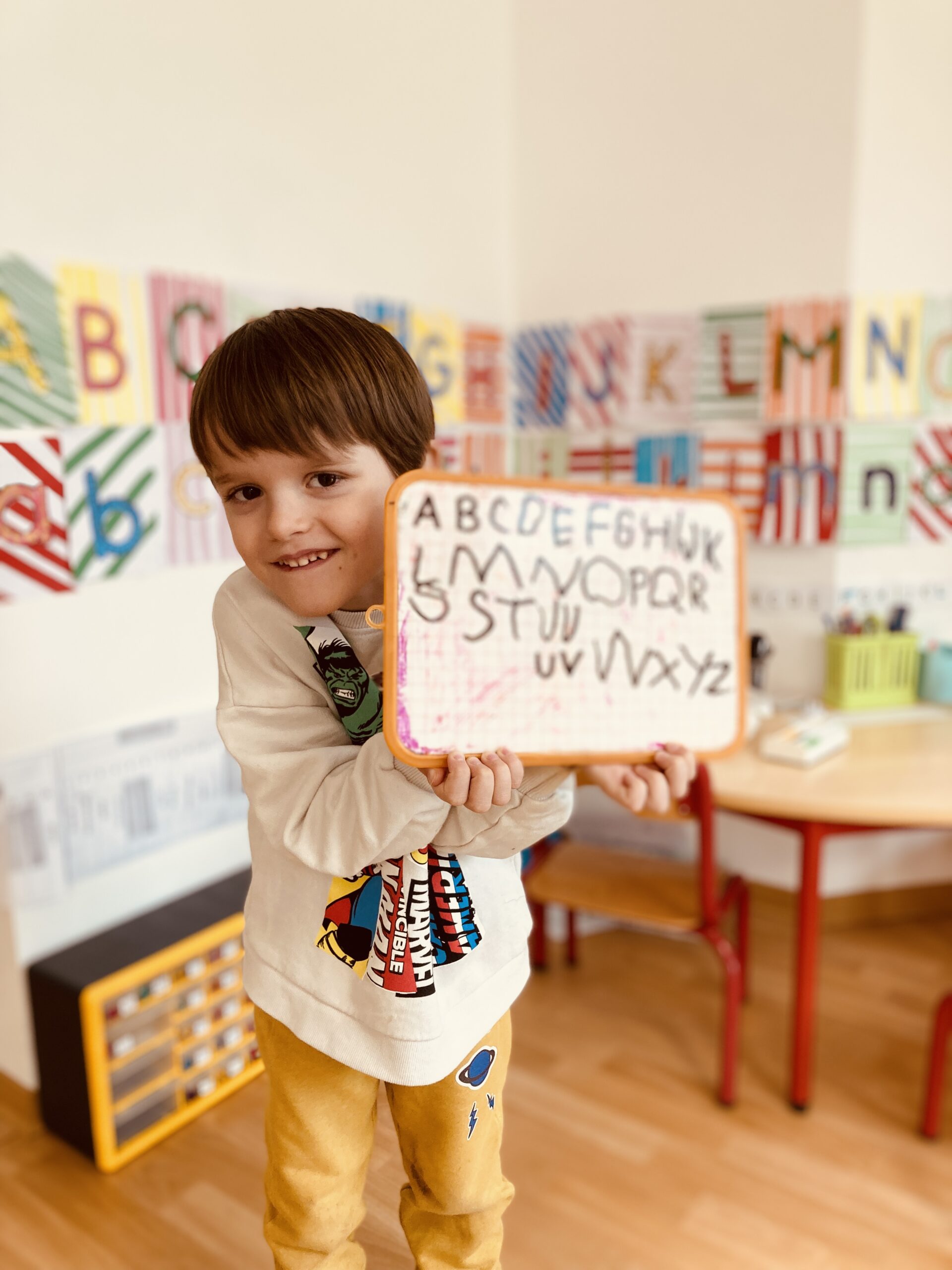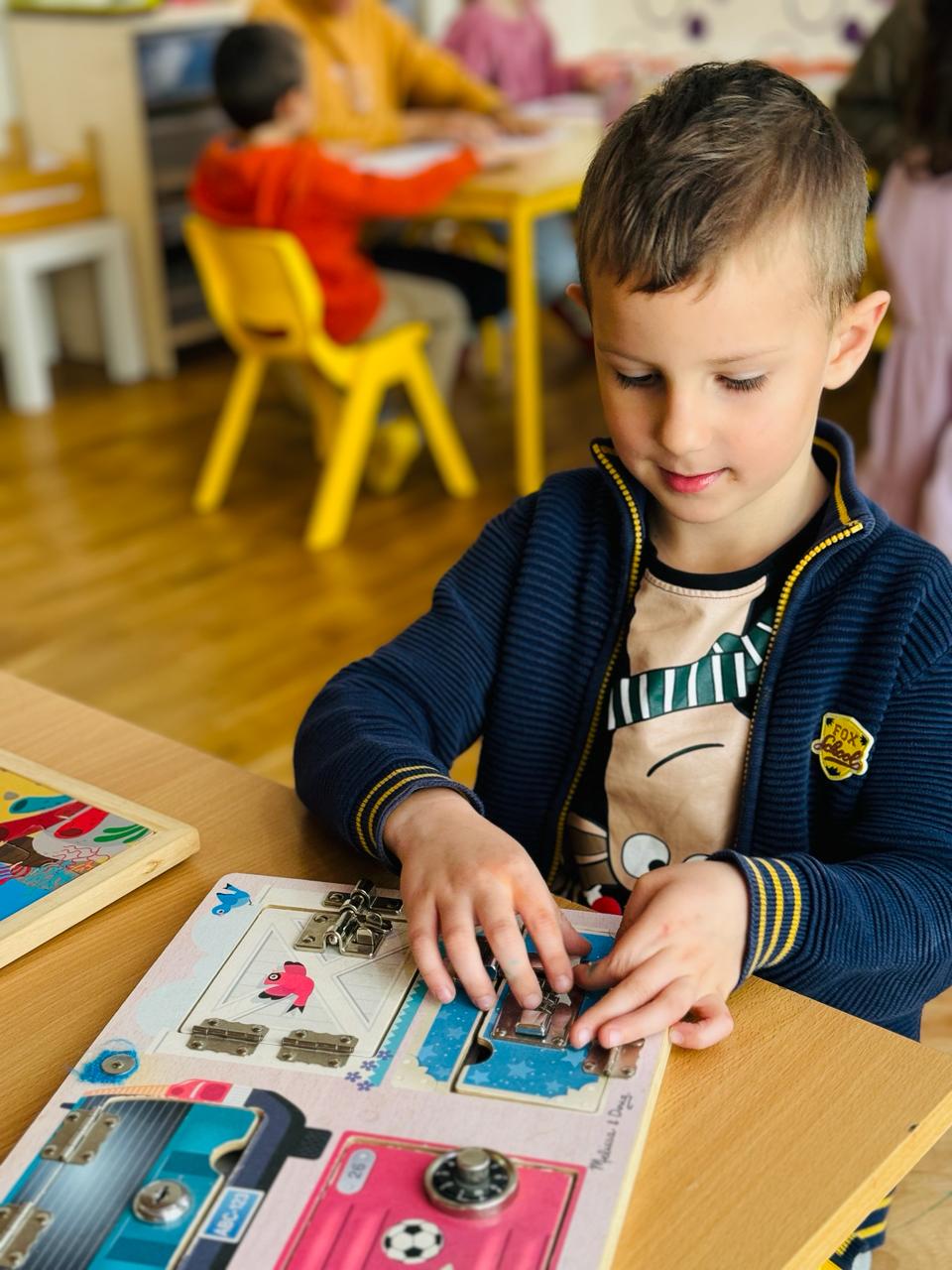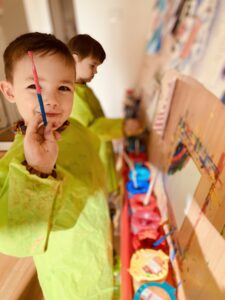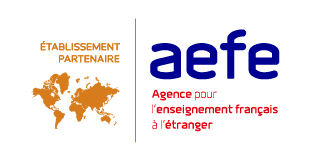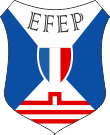Kindergarten
Kindergarten welcomes children from 2 and a half to 5 years old. It constitutes the first cycle of school, with three years of schooling called the petite section, the moyenne section and the grande section. This is the cycle of first learning, where children discover the world of school.
THE ROLE OF KINDERGARTEN
Kindergarten is a school for growing, learning and succeeding together.
- The child learns to become independent, to express himself, to develop his creativity.
- It is a caring school which is based on play, manipulation, discovery, exploration.
- The child discovers the world of writing and begins to learn to read, write and count.
The environment is adapted with spaces and equipment designed for young children, school activities that respect the child's pace, a peaceful environment where the child develops in complete safety.
Kindergarten is an important step on the path of students towards academic success. Its main mission is to support children in socialization, language, the pleasure of learning, affirmation and the development of their personality. They practice physical activities every day.
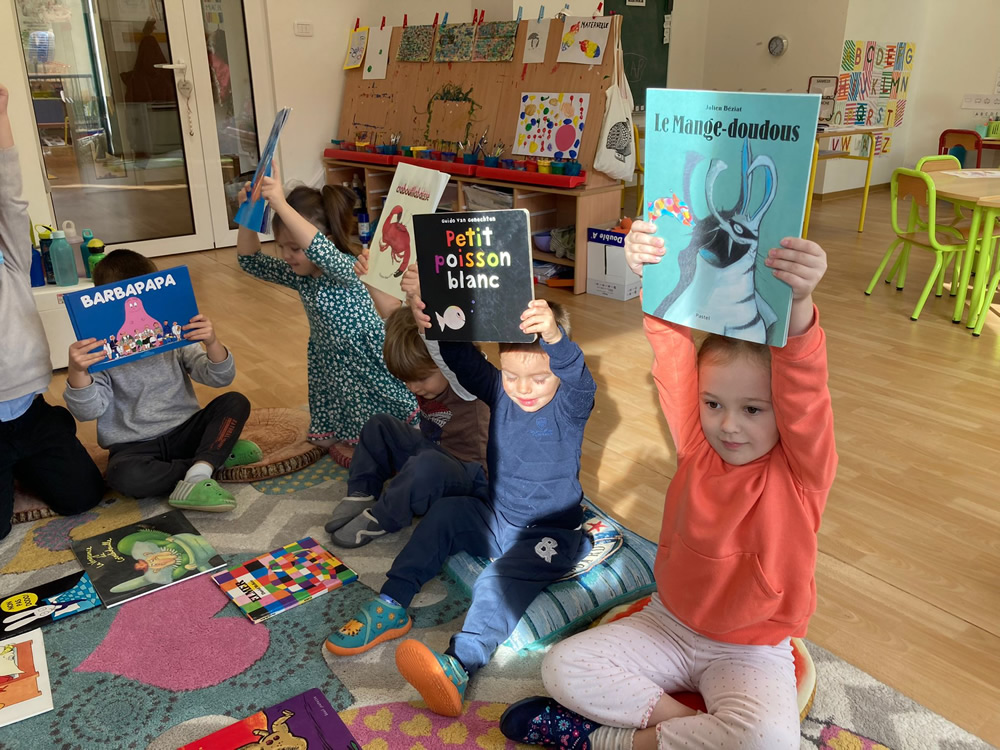
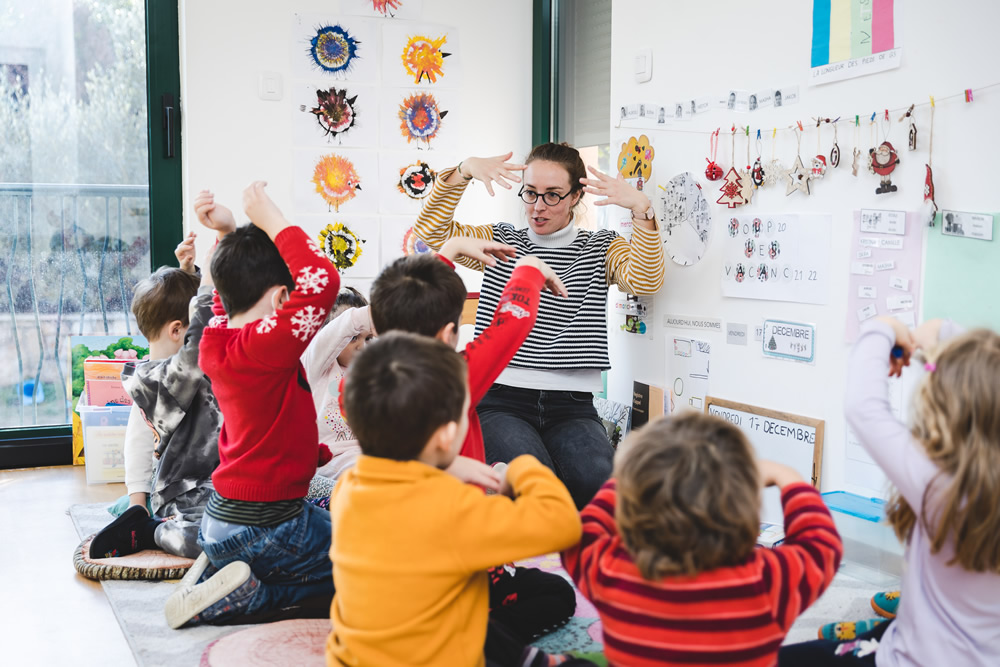
The difference with a daycare
The learnings
The nursery school program implemented at the EFEP is that defined by the French Ministry of National Education and is inspired by various educational methods, including Montessori pedagogy.
The small class sizes (up to 20 students) allow for quality individualized support. The teacher, French, is qualified in early childhood education. The educational assistant is also present throughout the day in the group to help the children with their daily activities.
Students also benefit from two interventions per week from Montenegrin and English teachers, for a multilingual approach from the early years.
The lessons are organized into five learning areas:
- Mobilizing language in all its dimensions.
- Act, express yourself, understand through physical activity.
- Act, express yourself, understand through artistic activities.
- Build the first tools to structure your thinking.
- Explore the world.
Typical day-to-day schedule
- 8:20 a.m. Welcome of students, breakfast
- 8:30 a.m. Language workshops in small groups
- 9:15 a.m. Independent workshops inspired by Montessori pedagogy
- 10:00 Snack and recreation
- 10:30 Motor skills
- 11:10 a.m. Gathering: story, album reading, songs, etc.
- 11:30 Lunch break: canteen and recreation
- 12:45 p.m. Start of nap for PS and MS who are sleeping
- 1:00 p.m. Quiet time for GS and MS
- 1:20 p.m. Workshops on numeration, phonology, graphics, arts, etc.
- 2:20 p.m. Wake up PS and MS,
- 2:30 p.m. End of day gathering: story, album reading, songs, etc.
- 2:50 p.m. Preparation for outing or daycare
